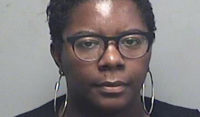Vote Fraud
Vote fraud disenfranchises Americans and poses a serious threat to both the integrity of and confidence in our electoral system. Opponents of measures to prevent vote fraud contend that its occurrence is either nonexistent or so rare as to be insignificant.
Vote fraud is insidious, committed quietly. And once it’s committed, it cannot be undone. Vote fraud contaminates the pool of votes, and if sufficiently extensive, will affect the outcome of an election. As elections determine who exercises political power, there is a motivation among some bad actors to cheat.
Vote fraud is rarely prosecuted for two main reasons. First, it is virtually impossible to identify the fraud before the damage is done as it is primarily committed through absentee and mail-in balloting; second, prosecuting the crime is expensive and is usually a low priority of prosecutors and local law enforcement more concerned with public safety. However, vote fraud is a crime that strikes at the center of our republic.
The principal weakness in our electoral system that fosters vote fraud is inaccurate voter registration rolls. The federal requirement that counties maintain clean, accurate voter rolls has been ignored over the years and actively resisted under the Obama Department of Justice.
Voter rolls should contain only the names of eligible residents of a jurisdiction, but in far too many counties, voter rolls bulge with the names of the dead, those who have moved away, non-citizens, fictional names and voters registered in more than one place.
A Pew Center on the States study in 2012 revealed that:
- Approximately 24 million—one of every eight—voter registrations in the United States were no longer valid or were significantly inaccurate.
- More than 1.8 million deceased individuals were listed as voters.
- Approximately 2.75 million people had registrations in more than one state.
In nearly 200 counties around the nation, more people are registered to vote than the counties’ population of eligible citizens. Examples abound of non-citizens and convicted felons registered to vote. In Philadelphia, an ACRU lawsuit in 2016 revealed thousands of ineligible people on the voter rolls. A sampling of counties in Virginia also found hundreds of illegal registrations, according to a 2016 study by the Public Interest Legal Foundation.
In-person vote fraud, while far more rare than absentee voting, does happen, as shown by the video sting operations of Project Veritas, in which an impersonator at a polling place in the District of Columbia claimed to be then-Attorney General Eric H. Holder, Jr. and easily obtained a ballot. In other Project Veritas videos political operatives openly discussed how to commit vote fraud in Wisconsin and other states.
The institutional Left has focused on preventing common-sense laws to require voters to prove they are who they claim they are, making the ridiculous and unprovable claim that photo ID laws discriminate against racial minorities and the poor. But, vote fraud is accommodated by other means such as extended voting periods and relaxed standards for acquiring absentee or mail-in ballots and not requiring proof of citizenship when registering to vote.
Several reasonable actions should be adopted to guard against vote fraud:
- enforce federal voter roll maintenance laws;
- require photo ID to vote in person;
- require voter ID and signature verification for absentee ballots;
- limit early voting to no more than a week prior to an election;
- require proof of U.S. citizenship;
- encourage more states to participate in cooperative efforts to identify voters registered in more than one state.
Voting is a privilege of citizenship and only legal votes should be counted. The only way to stop vote fraud is to prevent it!
ACRU Commentary
Keeping Elections Honest
862 registered voters in Broward were 105 years old or older, with 48 percent listed as “active voters."
New Report Exposes Thousands of Illegal Votes in 2016 Election
"With this report, we may have a clue as to why some states are resisting providing this data."
Rooting Out Vote Fraud
A mob of protesters organized by the ACLU threw a collective fit during the commission’s meeting.
Video: Hans von Spakovsky’s Opening Statement to the Presidential Commission on Election Integrity
My German mother grew up in Nazi Germany. My Russian father fought and escaped communism twice.
J. Christian Adams Speaks on Vote Fraud Deniers
Fox News speaks with ACRU Policy Board member J. Christian Adams on June 17, 2017 about his role in the Election Integrity Commission and voter fraud deniers.
The ACLU’s Attack on Election Integrity
The lawsuit charges President Trump and the election integrity panel with violating federal “transparency” laws.
News
Nadler in 2004: ‘Paper Ballots Are Extremely Susceptible to Fraud’ – News Punch
New York Congressman Jerry Nadler in 2004: “Paper ballots are extremely susceptible to fraud. Just paper with no machines? I can show you experience which would make your head spin.” New York Congressman Jerry Nadler in 2020 (we are paraphrasing, but you get the gist): “Paper ballots now create their own paper trail.” The hypocrisy might be funny if we were not talking about voting, our most sacred right as Americans.
Award Winning Democrat Just Got Served With A Stack Of Felony Charges
The Democratic Party loves the “unconventional methods” of Michigan party official Sherikia Hawkins so much that they gave her an award. Her methods were so unusual that she was arrested on six felony charges. Hawkins engaged the community in voting by “forging records and falsely marking absentee ballots as invalid” during the 2018 midterm election.
Arizona’s Election Integrity Unit is a role model for other states
Arizona recently upped its game on election integrity with significant improvements to its Election Integrity Unit. These changes include an easy online election fraud reporting system, and aggressive action on any necessary litigation (including a recent double voting case.) We are grateful that Arizona is actively working to prevent fraud, not just waiting to address it after it happens.
USPS failures contribute to suppressing votes
The current tally of mail in votes voided by California election officials in its March primary is 102,000+. Most were rejected because they arrived too late for counting. Combine the famous inefficiency of the post office with the potential of dishonest officials keeping ballots in the bottom drawer for a day or two, and what you’ve got is stolen votes.
New York election officials skipped math class
Many important things happen immediately after elections for outgoing, newly incoming, and even incumbent officials. Time wasted counting votes means constituents are ignored and fraud gains an edge. A month after New York’s mail in primaries, winners and losers are still in limbo. New York’s nearly mail-only election is a mess and it’s not going to get better by November.
Dead cats voting: funny, not funny
Former Atlanta feline Cody Tims passed away in 2008 after a lifetime of service to his loving family. This cat apparently was signed on to a mailing list at one point that was then sold to vote activists (yet another mail-only voting problem.) Cody is a purrfect example of why voting lists need constant updating. It is appalling that this cat not only was a registered voter but is still a registered voter after having passed away twelve years ago.












